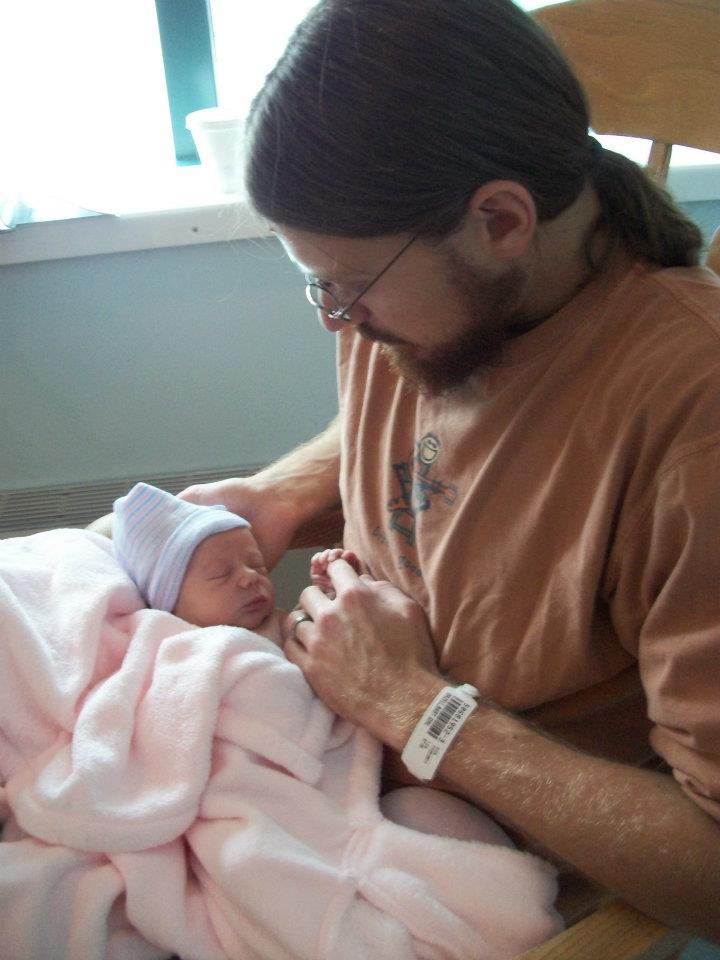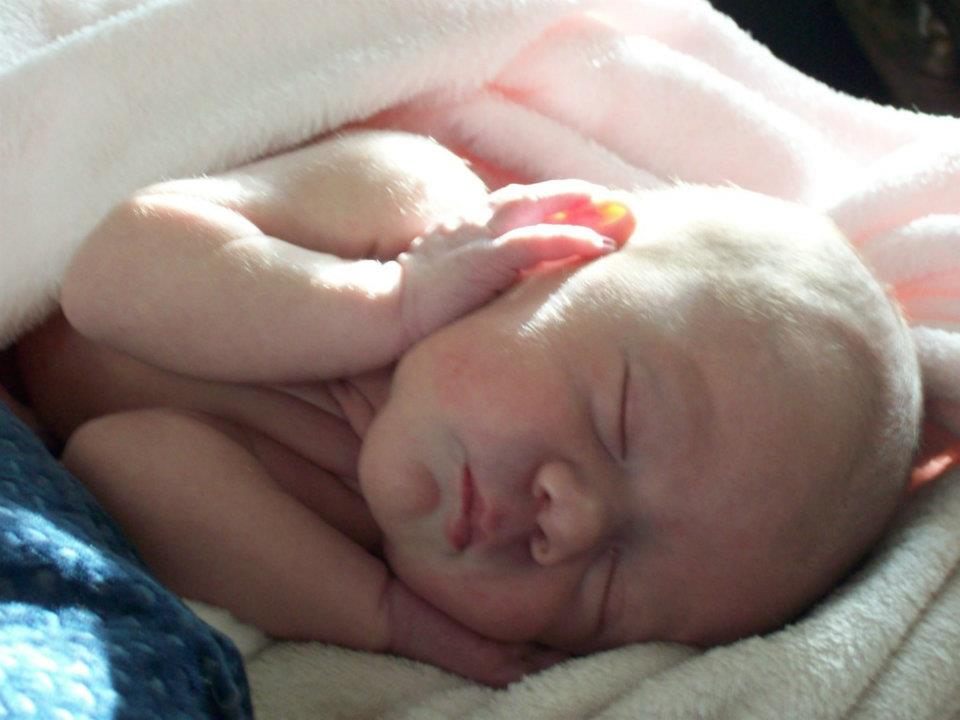Maybe it's magic: The birth of Aubrey Autumn
When I walked away from my first marriage at the […]
When I walked away from my first marriage at the age of 27, I didn’t know what the future would hold. And I didn’t care, as long as it was a fresh start. And so it was, the beginning of a long odyssey of self-reliance and discovery: moving from the Midwest to Boston, 1200 miles away from my family, changing careers, and trying to build new friendships from scratch. I made my way in that tough city, wandering her many neighborhoods and embracing everything she had to offer. For 10 years I worked, studied, danced, and lived my life on my own terms—terms that never included a yearning for motherhood.
What I didn’t know was that I’d made a deal with fate. By leaving my marriage, I also left behind my fertility. I didn’t meet the man who would become my second husband until I was 34, and we took it slow. We waited. Seasons passed and finally we married, and then again we waited. Finally time and circumstance said we were “ready,” and we started trying for a baby. After a year of trying with no success, a series of tests concluded with a single devastating diagnosis: premature ovarian failure. I was 38-years-old. The months that followed that awful day were grievous and painful. The finality of it was hard to digest, and I resisted with all the drive and focus that was previously reserved for school and career. Chinese herbs, acupuncture, yoga, a raw diet, basal body temperature plotting and fertility diagrams, I did them all to no avail. There was no pregnancy. Further visits to the infertility center gave us more statistics: The chances for a successful IVF in a woman my age with P.O.F. were about 1 to 2 percent, whereas using a donor egg would give us about a 50 percent chance of conception. But it would also cost a lot more.
My husband and I began to argue more frequently, our relationship frayed by this unexpected turn in how we thought our lives would be. It was clear we couldn’t afford to choose a known donor from an agency, with all its incumbent fees. So we decided to put our names on the donor recipient list at Dartmouth Hitchcock’s New Hampshire Fertility Center, where the hospital’s pairing with a suitable anonymous donor was more affordable. My hoped-for child’s origins were now in the hands of fate. It was a clear, sun-filled day in October when the phone rang at my office. It was our donor coordinator at the fertility center, saying we had made our way to the top of the list. After waiting nearly six months, the time suddenly seemed to be upon me in a rush. Tears fell, because I had clung to the idea that I might get pregnant just in the nick of time, like how so many online stories endorsing fertility-enhancing products seemed to end.
In a daze I took it all in—the donor’s profile, coordinating my cycle with hers, the sonograms, embryo transfer, and, if successful, fifty-five days of intramuscular progesterone shots. I treated the entire affair like a course I’d taken at Harvard. I took copious notes, marked my calendar, returned emails, and showed up for appointments.
But then the donor had a problem. Her estrogen levels—one of the indicators the doctors used to determine the maturity of her eggs—dropped precipitously below what they considered to be normal. This happened the very week we were scheduled to harvest her eggs. The doctors didn’t really know what this drop in estrogen meant, though clearly it wasn’t a good sign. We were given the option to stop the process altogether, though we were nearly at the end. None of this was covered by insurance, and there would be no refunds. With eyes squeezed shut, my husband and I took our second leap of faith, deciding there was nothing to be done but continue. The following weeks were even more of a roller coaster. The good news: Of the 16 eggs harvested, eight fertilized. The bad news: after transferring the best two, the remaining six all disintegrated and had to be thrown out. Did this mean that none of the embryos likely survived?
A few days before my expected period, I had PMS symptoms so similar to normal that I knew I wasn’t pregnant. I was sobbing in the conference room at work over this revelation when a good friend came by. In despair, I said, “I don’t think it worked. How are we going to go on?” I will never forget the words of my dear friend: “To be honest, you’re acting like a pregnant woman right now!” And he was right. The next day, two lines. Two lines! I bought at least 10 pregnancy tests just to see the positive sign develop. Even the progesterone shots weren’t as bad as I thought they would be, as each night my husband and I would have a “shot party” that consisted of ten minutes of ice, thirty seconds of anxious needle sticking, and then 15 minutes of a heat pad. I thought it would be horrible, but the time was full of reconnection for my husband and me, and a time of hope.
But for me, there were still private moments of uncertainty. Now, nearly six months pregnant, I was talking to a friend about her young daughter. Clearly having forgotten my circumstances, she said, “It’s just the neatest thing, how you see yourself and your partner in your child.” That night, I went to bed early, her words still echoing in my mind. Before my husband came to bed, the tears came. What would my baby look like? She wasn’t mine! At that point in my pregnancy, the daughter I’d not yet met was moving a lot, and as I wept she kicked, flipped, and pushed against me. I lay there, torn between loving the little life inside me and feeling like she didn’t belong. How would it be when she learned she was a donor-egg child? Would she have an identity crisis? Would she wonder about her donor momma? When she learned of her origins, would she see me through different eyes? So many things I didn’t know. Ironically the most important aspect of my struggle was something I hadn’t thought about at all.
I never really understood what the “BFP” on the pregnancy test actually meant. For me, to finally be pregnant was the end goal unto itself. I never thought past achieving that goal, past the nursery planning and birthing classes. I never thought about what it would mean to be a mom.
At 7:35 a.m. on November 22, 2011, that all changed when like a slippery fish, Aubrey Autumn came into the world. My vague notions of motherhood suddenly came into crisp focus as I cradled my tiny daughter to my breast. A fierce protectiveness came over me that I’d never felt before, a sense that no other child, from my DNA or not, could be as perfect as this tiny person gazing up at me. She was meant to be, meant to come into this world in the exact way that she was, to be herself and no one else. My life, and my infertility, was purposeful—a vehicle for her life to manifest.
The last year and a half has been filled with the challenges that come to all new mothers—sleepless nights, anxious doctor’s visits, mysterious rashes, and poop blowouts. As a working mom, I dragged my breast pump to work and worried over how many ounces I produced. Diapers and formula filled my shopping basket, and I suddenly found myself in deep conversation in aisle four with any stranger holding a baby. Indeed, I went baby crazy! It was like a part of my personality I never even knew existed unearthed itself from deep inside of me. Always known as the one who couldn’t run away from slobbery babies fast enough, even my own family members didn’t recognize me. Suddenly my future was viewed entirely in terms of what I hoped for my child. A week ago I commented to my husband how much our daughter loves to dance, and how she has long, strong legs just like her momma. Not her donor momma, but me, her real momma. She also has my green-hazel eyes. I told him about an article I’d read about a relatively new line of research called epigenetics, and how there is evidence showing that the womb could influence how genes were turned on or off during development. Maybe I had more influence than we know in the mystery of building this brilliant new life? “Or maybe it’s just magic,” my husband said. “We are all here because of magic.”











